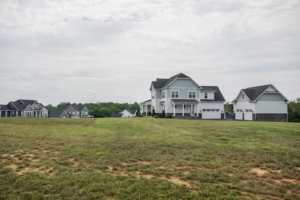
by Dick Hall-Sizemore
Today’s Washington Post has an article about efforts to preserve farmland in Loudoun County.
That headline instantly took me back to the late 1970s and early 1980s when there was a flurry of activity regarding the need to preserve farmland and provide landowners incentives to keep their farmland from being developed.
Loudoun County was in the center of that activity. At that time, the population of the county was about 57,000. Development in the area near Dulles Airport and the Rt. 7 corridor was in the early stages. A large part of the county was open land, consisting of large estates, as well as medium and small farms. The tools for preserving that land that were being discussed, sometimes heatedly, were conservation easements and transfer of development rights. A sample report of some of those studies is here.
By the time of the 2020 census, Loudoun’s population had swelled to almost 423,000 and it was considered the richest county in the United States. And some long-time residents are still expressing anguish over farmland and open space being replaced by houses and streets.
The debate this time is a little different than it was 40 years ago. One group is trying to limit the amount of farmland lost by changing the zoning code to require developers of cluster residential developments to set aside at least 70 percent of the property’s prime agricultural soil for farming or other agricultural uses. Another group of conservationists who own land which they plan to put into the county’s conservation easement program is opposed to such a change because they feel that it would result in devaluing their land. Land in the conservation easement program has permanent restrictions on its development. In return for giving up the right to develop their land, the owners receive a tax credit based on the projected developmental value of the land. They contend that, if the proposed zoning change were enacted, their land, and potential tax credit, would be worth less because fewer houses could be built on it.
As Steve Haner indicated in recent comments on another subject, it seems that many issues that are surfacing now are not really new. The parameters of the debates may be different, but the underlying issues have been around for a long time.

Leave a Reply
You must be logged in to post a comment.